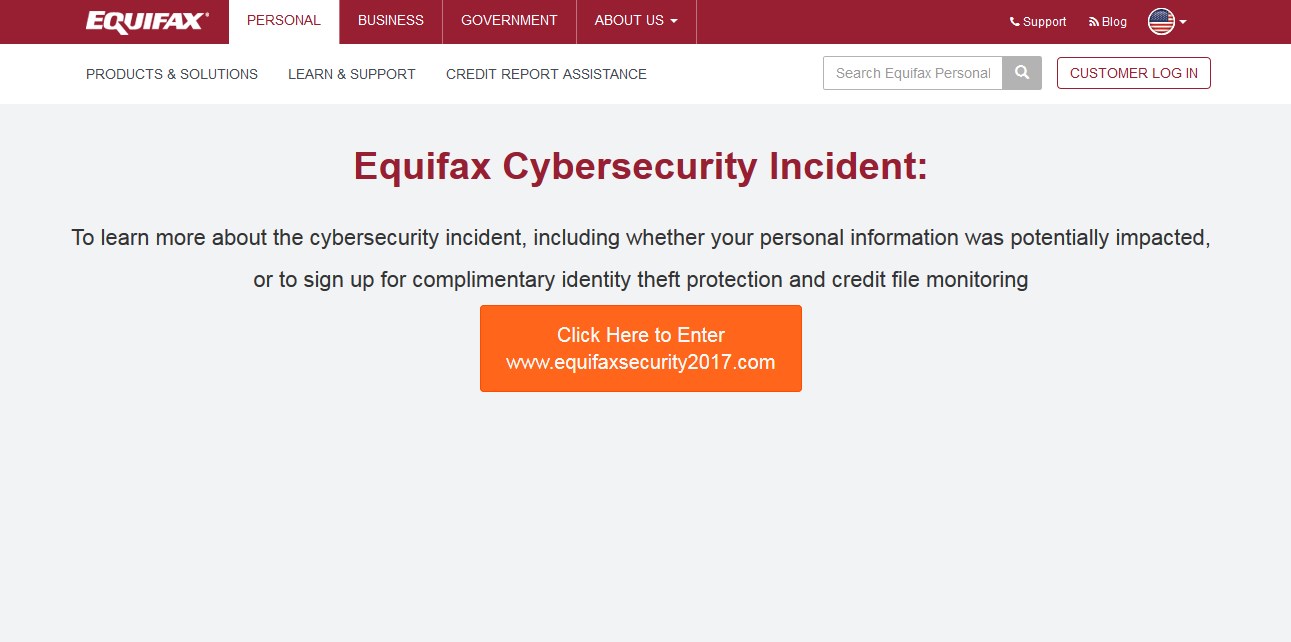
21 Sep The Equifax breach: What you need to know
by AARP New Jersey
Last week, Equifax, one of the nation’s three major credit bureaus, announced that a data breach likely compromised the information of approximately 143 million Americans. The media swirl that ensued has left many people confused and alarmed.
What you should know:
• As a credit-reporting agency, Equifax collects information about consumers and how we handle our financial obligations.
• Equifax and other credit bureaus sell this information to lenders and credit-scoring companies to determine our eligibility for loans and lines of credit, and even employment. The data these agencies collect include our Social Security and credit card account numbers.
• Even if you don’t think you’re a customer of Equifax and you don’t bank online, you still may be affected.
What you should do:
• To find out if the breach may affect you, visit www.equifaxsecurity2017.com. Read “A ProgressUpdate for Consumers” while you’re there, to get clarification on issues surrounding the company’s offer for free credit monitoring for a year and implications for signing up for the service.
• Regularly review your credit reports, and look for unauthorized activity. You can order a report from each credit bureau once every 12 months at www.annualcreditreport.com.
• Consider placing a credit freeze on your file to prevent identity thieves from opening a new account in your name. Depending on the state in which you live, the bureaus may charge a small fee for this service. You will have to request to lift the freeze when you apply for credit.
Equifax — 1-800-349-9960
Experian — 1-888-397-3742
TransUnion — 1-888-909-8872
• Monitor your credit card and bank statements, because a credit freeze won’t stop a thief from unauthorized use of your existing accounts.
• Be wary of any emails appearing to come from Equifax – they may be from scammers trying to get additional information.
• For your questions about identity theft or other types of fraud, call the AARP Fraud Watch Helpline at 1-877-908-3360 to talk to one of our trained volunteers.
When it comes to fraud, vigilance is our number one weapon. You have the power to protect yourself and your loved ones from scams. Please share this alert with friends and family.
P.S. Spotted a scam? Tell us about it. Our scam-tracking map gives you information about the latest scams targeting people in your state. You’ll also find first-hand accounts from scamspotters who are sharing their experiences so you know how to protect yourself and your family.
The AARP Fraud Watch Network connects you to the latest information about ID theft and fraud so you can safeguard your personal information and your pocketbook.
If you or someone you know has been a victim of identity theft or fraud, contact the AARP Foundation Fraud Fighter Center at 877-908-3360.
[divider style=”none”]
[/divider]
This is a sponsored section. The advisors have paid a fee to post their commentary here. Their sponsorship doesn’t influence any editorial decisions we make at NJMoneyHelp.com, or give them more or less exposure in our stories. Their posting does not constitute an endorsement by NJMoneyHelp.com.

